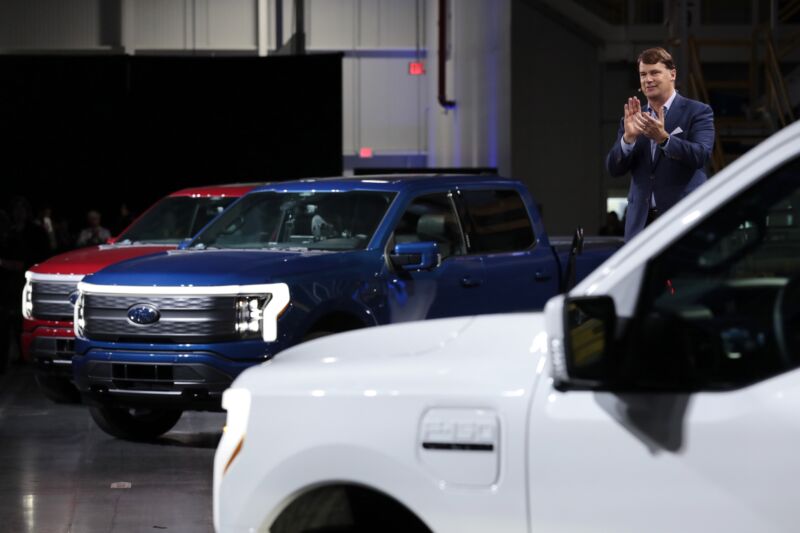
Ford dealers have until the end of October to decide if they want to keep selling electric vehicles. And they'll have to agree to some new conditions if they do, including transparent, set pricing, available online, according to a new report at Inside EVs.
We've known for some time that Ford was looking to shake up the way people buy its EVs in the US, moving all its EVs into a new business unit called Model e, with another called Ford Blue that will be responsible for internal combustion vehicles and hybrids. In June, CEO Jim Farley said: "We've got to go non-negotiated price. We've got to go 100 percent online. There's no inventory, it all goes directly to the customer. And 100 percent remote pickup and delivery," during a presentation to investors.
Farley's not going to get all those wishes, but this week the automaker gave dealers a look at the future during an annual dealer conference. If a dealer wants to sell Model e EVs, they'll have to agree to invest in regular training, install charging infrastructure, improve their physical and digital sales experiences, and perhaps most importantly, publish non-negotiable pricing online. You should be able to buy a Ford EV without ever setting foot in a dealership, but due to state laws the sales will continue to be facilitated through dealerships, not directly from Ford.
However, according to Inside EVs, dealerships will still be able to set their own prices, so this probably isn't the end of markups for EVs. But Ford thinks that as long as prices are online, customers can cross-shop to find the cheapest options. And once a price has been agreed online it can't be changed.
Dealerships will need at least one publicly accessible DC fast charger to become Model e-certified. If they want more than a bare minimum allocation of EVs, that requires becoming Model e Elite-certified, which requires more investment, including at least two DC fast chargers. And that's not free—it may cost up to $500,000 to become Model e certified and $1.2 million to become Model e Elite certified.
But car dealers have been riding quite the wave these past couple of years, and they always have the option of telling Ford they're sticking with fossil fuel-powered cars and trucks if they don't want to spend the money. It's not without precedent; in 2020, around 30 percent of Cadillac's dealers gave up their franchises rather than invest in preparing for that brand's electrification.
Ford dealers have until October 31 to decide. The new rules will go into effect in 2024, and a dealership that changes its mind—wanting to sell EVs after declining—will have to wait until 2027 before obtaining Model e certification.
reader comments
260